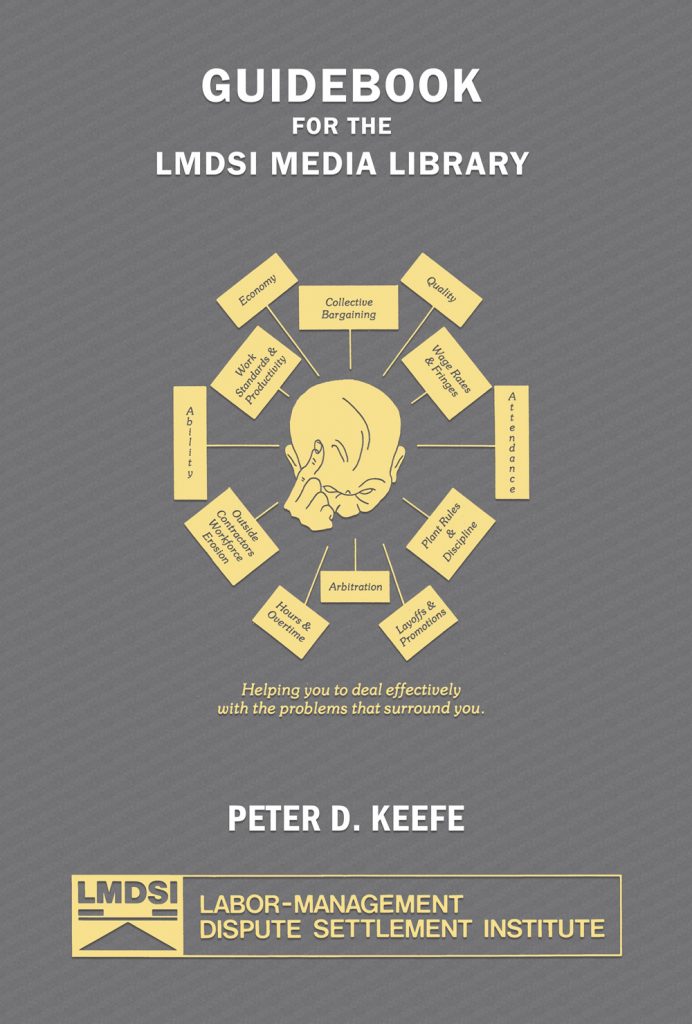Home
What is the LMDSI Media Library?
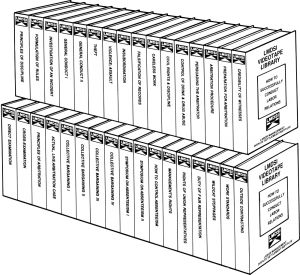
The LMDSI Media Library is a compilation of digitized videotapes and print books that comprehensively captures the sage wisdom of America’s ablest labor relations experts.
Whether you are an arbitrator, mediator, attorney or consultant, are an official of a labor union, or are an executive of a company that does or does not have a labor agreement, the Media Library can make a very real difference for you.
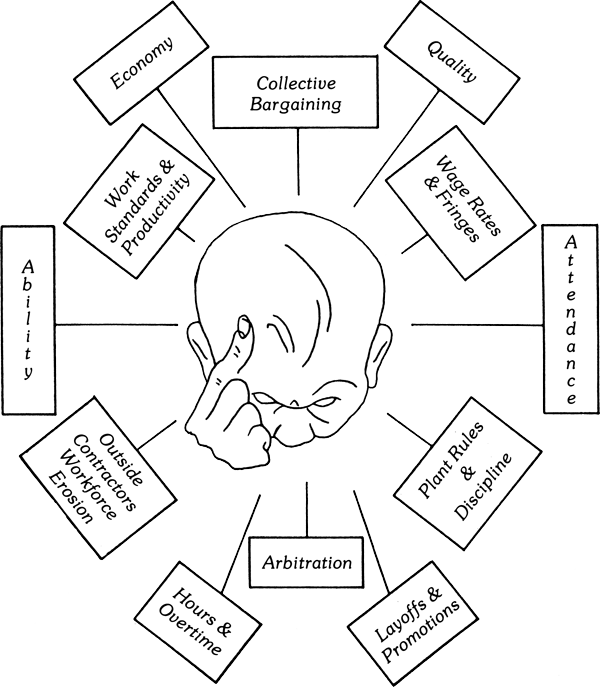

Whether you are in a company, a union, a municipality or a school, or are simply someone faced with one or more human resources issues, the depth and extent of the time tested labor relations knowledge contained in the videos will deliver the guidance you seek.

The Media Library can serve a consultative role in that the wisdom can help you solve current or pending labor relations problems, implement practical techniques to avoid future problems, and sharpen your overall labor relations skills.

The Media Library can serve an educational role in that each of the titles can be utilized as the centerpiece of an in-house training program.
The LMDSI Labor Arbitration Series goes right to the point on what to do and explains how to do it in direct and easy to understand recommendations. Arbitration costs money and involves face; no one can afford to lose either, and this series is designed to save both money and face. The series is complete, intensive and authoritative. It is geared to up-grade the expertise of practicing advocates and to introduce new practitioners to the responsibility with a high degree of competency. Go»
Disputes are inevitable possibilities in a relationship between equals, simply because the parties view the same contract language and the events transpiring during the span of agreement from different perspectives. The LMDSI Labor-Management Relations Series deals realistically with these possibilities in order to unveil how disputes may be assuaged. Go»
The application of discipline is corrective and the method for its attainment is progressive, in that progressively severe penalties are meted out for repeat offenses, except in those instances involving the commission of gross or intolerable offenses, when summary discharge is warranted. Systems for implementing discipline must survive the arbitral tests of reasonableness and procedural due process, while at the same time providing practical mechanics for enforcement. Go»
The absence control program which becomes established will apply in no better and no worse fashion than is the soundness or the fallibility of the judgments made in accepting or rejecting proffered excuses for occurrences, since these decisions shape the extent of the record of the employee. Go»
The real art of collective bargaining is in application of skills and strategies which move the other side off of its fixed position so that they come to you. The main theme of this series is How to Prevail in Collective Bargaining by utilizing proven techniques and tactics which induce favorable compromise. Go»
This Guidebook to the thirty-three videos of the LMDSI Media Library is designed to facilitate both the consultative and educational roles of the Library and includes the Arbitrator's Award for Program 208. Go»
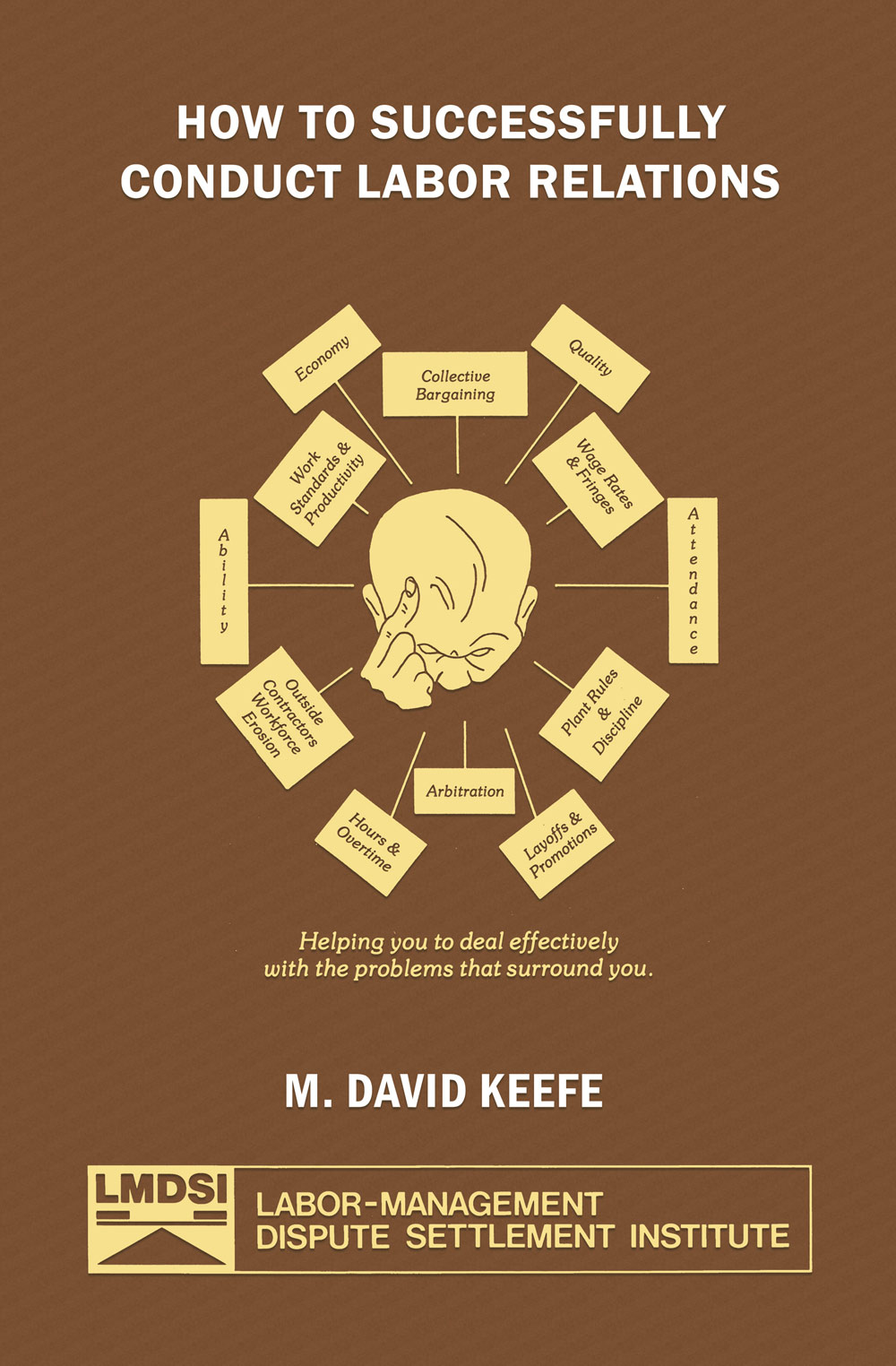
How to Successfully Conduct Labor Relations
This four volume treatise provides practical guidance for the handling of virtually any situation presented to those persons charged with the resolution of human resources issues, whether those persons are management, affiliated with a labor union, or are neutral practitioners, whether the setting is the private sector or the public sector, or whether the workforce is organized or not.
Volume I addresses the issues associated with prevailing in collective bargaining, from negotiation tactics and strategies to writing clear language that reflects the meeting of the minds of the Parties.
Volume II explains how to effectively administer the labor agreement, including implementation of the grievance procedure, investigation of incidents, and settlement of disputes.
Volume III reveals how to properly measure discipline, starting with formulation of rules, then evaluation of guideposts to the enforcement of rules, and concluding with an exemplary set of general rules of conduct.
Volume IV illustrates how to present arbitration cases to win by defining both the art and tools of successful advocacy, including selection of an arbitrator, preparing the case, opening statements, introduction of evidence, conducting direct and cross-examination of witnesses, and closing statements.
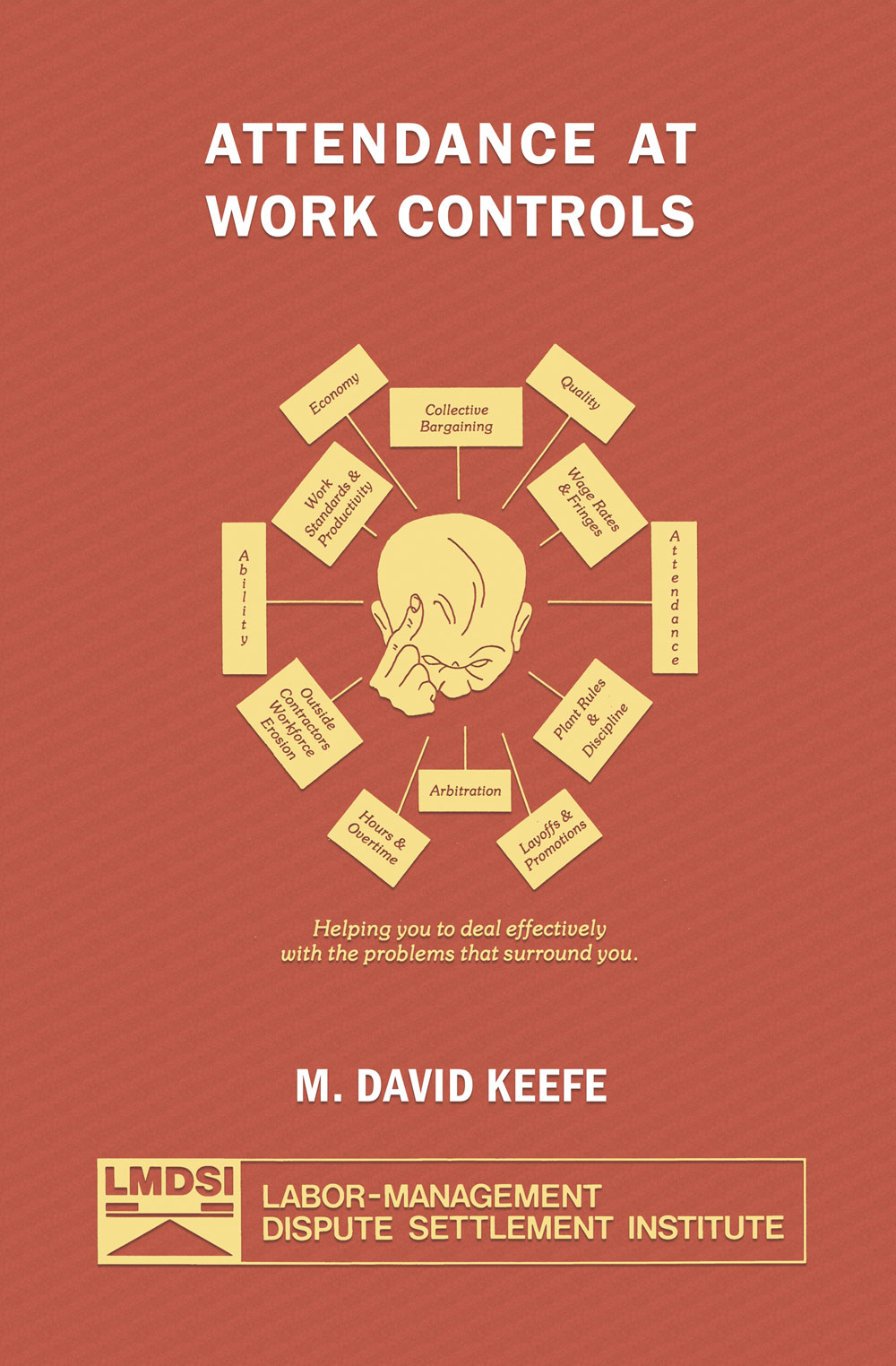
Attendance at Work Controls
This guide to the formulation and administration of rules for attendance and tardiness controls is written to guide those charged with the administration of human resources, whether those persons are management, affiliated with a labor union, or are neutral practitioners, whether the setting is the private sector or the public sector, whether the workforce is organized or not. The book includes a section devoted to criteria for administering troublesome areas, such as doctor visits, emergencies, illnesses, court appearances, personal problems and commitments, and incarceration.
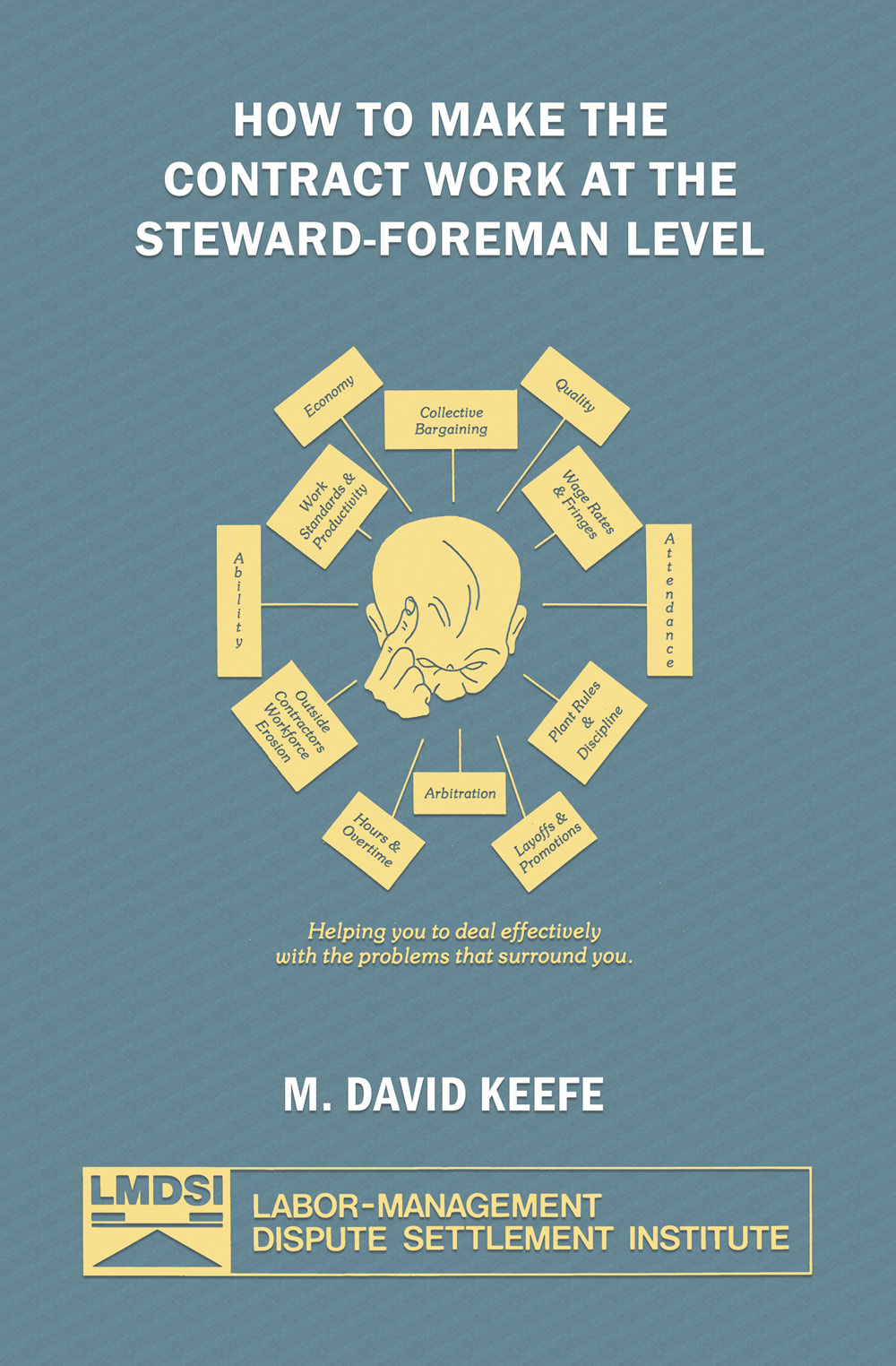
Make the Contract Work on a Steward-Foreman Level
This guide to the administration of the contract at the point of production presents a solid framework on the evolution of the process that uniquely applies to the workplace environment, being valuable for anyone charged with the administration of human resources, whether those persons are management, affiliated with a labor union, or are neutral practitioners, whether the setting is the private sector or the public sector, whether the workforce is organized or not. The book addresses the essential functions of foreman and stewards, the key ingredients of leadership, what to do when an incident arises, and how to resolve the incident on the merits under the contract language and/or published rules.
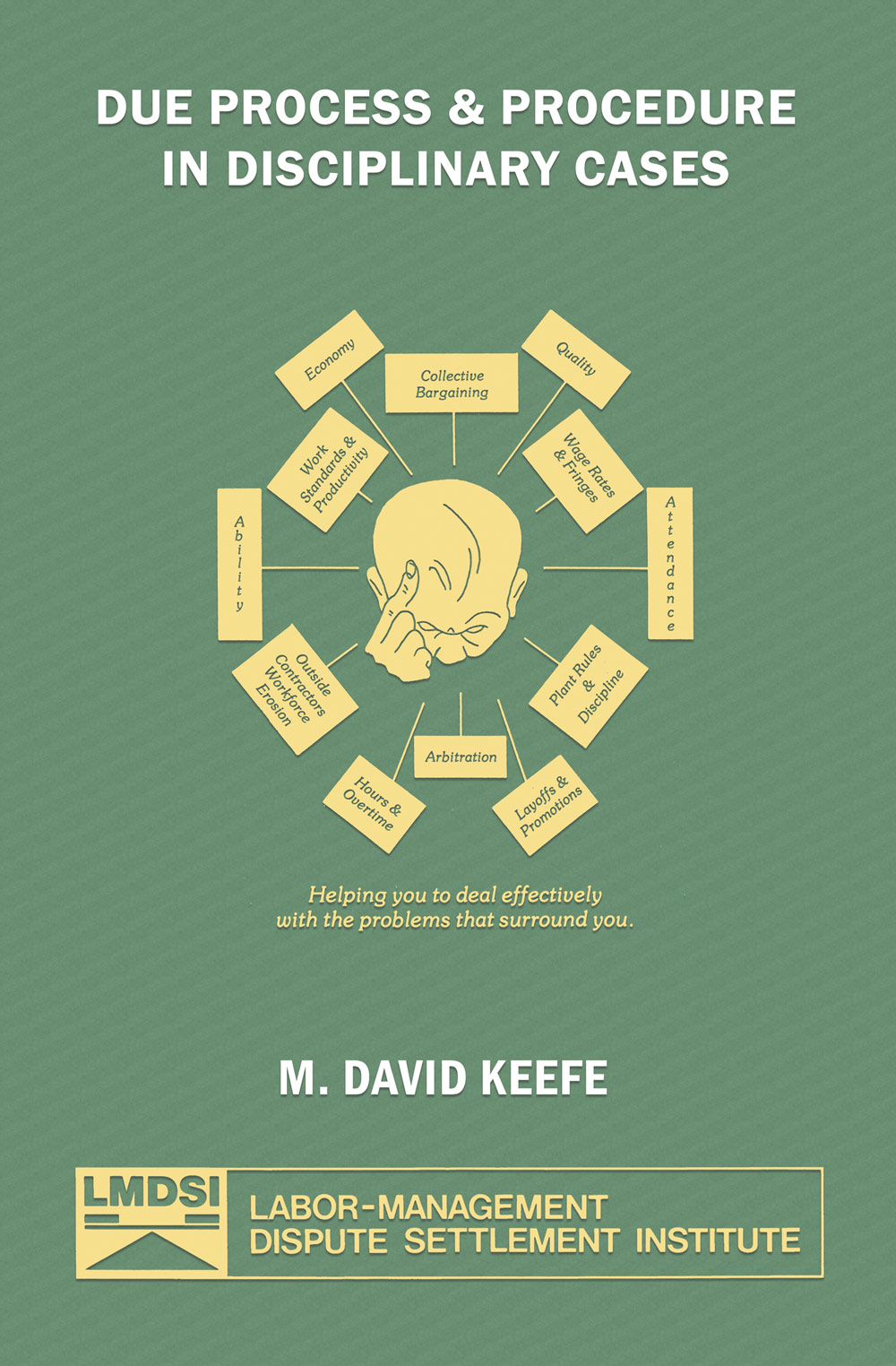
Due Process & Procedure
This guide to the process and procedure for the resolution of discipline issues presents a solid framework of the evolution of the aspects that uniquely apply to the workplace environment, being valuable for anyone charged with the administration of human resources, whether those persons are management, affiliated with a labor union, or are neutral practitioners, whether the setting is the private sector or the public sector, whether the workforce is organized or not. The book addresses issues related to searches, surveillance, and security, with an analysis of misconduct violations, such as theft, falsification, harassment, substance abuse, and gambling.

How to Achieve Competitive Unit Cost of Manufacturing Through Productivity
This book addresses the issues encompassing any management activity involving the human element where the collective and individual attitudes of all concerned bear decisively on survivability in competition for the world marketplace. The sage wisdom is valuable for anyone charged with the administration of human resources, whether those persons are management, affiliated with a labor union, or are neutral practitioners, whether the setting is the private sector or the public sector, whether the workforce is organized or not.





